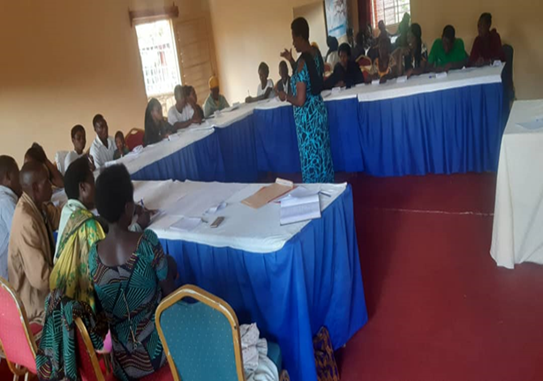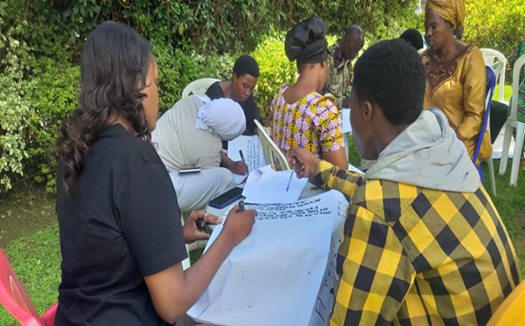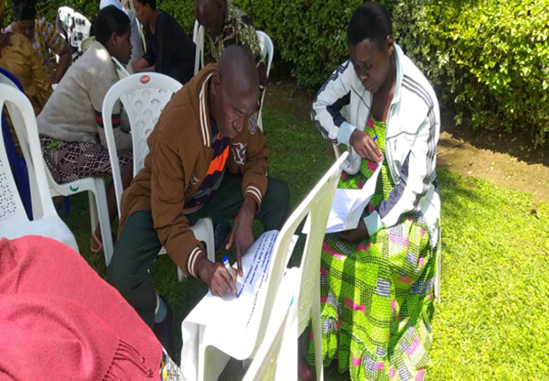TRAININGS OF GRADUATES FROM SOCIOTHERAPY HEALING GROUPS ON COLLABORATIVE LIVELIHOOD SKILLS /MAY-2024
The interconnection of mental health, livelihoods, and peace consolidation systems and how it entrenches patterns of trauma, weak social cohesion, and poverty outcomes was highly pointed by different empirical research, and the ineffectiveness of isolated intervention highlighted.

Trainings in Nyamagabe District
In that context a financial and livelihood, skills training of trainers were organized by DIDE in partnership with Interpeace and Prison fellowship Rwanda on May, 16th , 2024.
This report outlines the details of the financial and livelihood skills training conducted for the graduates of sociotherapy healing groups. The training aimed to equip participants with the necessary skills to enhance their financial literacy and improve their livelihood opportunities, ensuring sustainable economic empowerment post-healing.


Practical session of writing the project proposal by training partcipants of Musanze District
The main objectives of the training were to transfer the knowledge to implement and teach the implementation of the collaborative livelihood incubation and Business Plan Development Protocols to representatives of graduates from community healing groups who will train their fellow community members.
The specific objectives of the training were to:
- To empower trainers to effectively teach, guide, and inspire other community members to embrace and implement the co-live protocol.
- To reinforce community members capacity in project development and run their own development ideas by :
- Improving participants’ understanding of basic financial concepts such as budgeting, saving, and investing.
- Providing practical skills for managing personal and group finances effectively.
- Equipping participants with livelihood skills that can be used to generate income.
- Promote entrepreneurial thinking and self-reliance among participants.
- Foster collaboration among group members to create joint income-generating projects aimed at strengthen participants’ social cohesion.
Participants
A total of 100 (including 56 women and 44 men) graduates from sociotherapy healing groups of the five Districts of programme intervention participated in the training. These participants were selected based on their position of their respective group’comitees. Due to the budget constraints four peoples have been selected in each District, two people came from adult groups and the other two persons came from the Youth groups, all have been advised to respect the gender balance and people who could transmit the acquired knowledge to other members of their groups.
After explaining the contents of the simplified project document form translated into Kinyarwanda and how to develop a business plan, the participants practiced intensively in order to join their group mates with the skills to write their project proposal together.
As the co-live training was conducted primarily via a participatory approach this helped participant to be engaged in the training : They asked questions and give constructive feedback that showed their great interest of learning:
A female participant from Busogo sector said that: ‘’This training helped me to be aware that we should not think of a project that will only benefit us alone but that we should rather think of a project that can also benefit others, especially like us young people, we should think of a project that can also give work to our unemployed colleagues.‘’
The participants, both males and females, were fully interactive and engaged. Most of the healing groups participants have already some ideas on the projects they want to initiate, and some have started. This is why they were highly interested in the training and were using their own project as practical examples.
